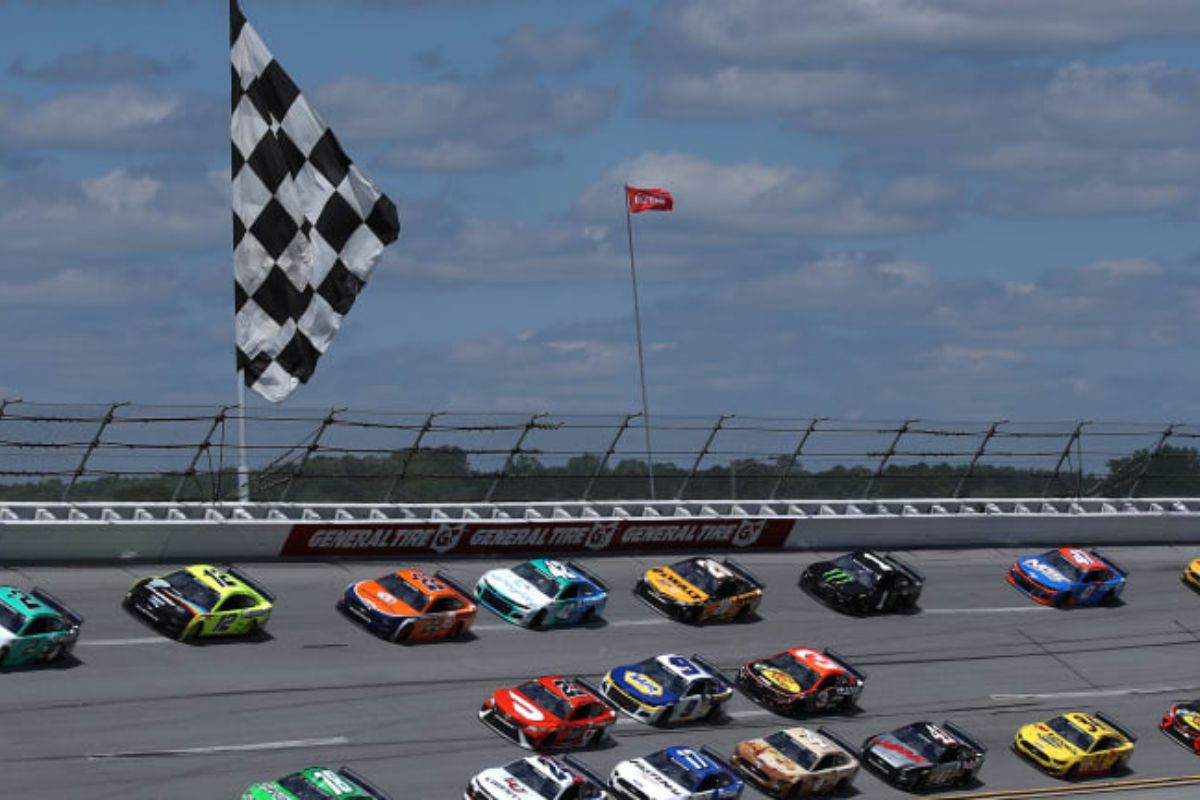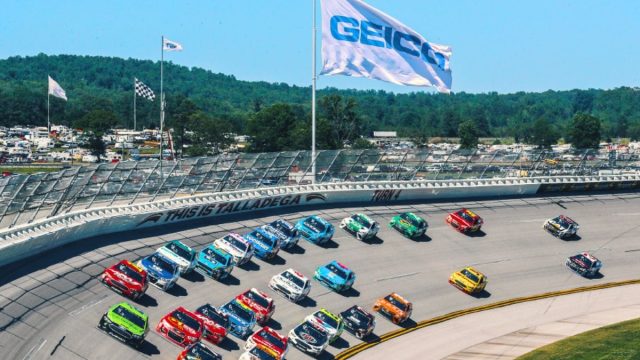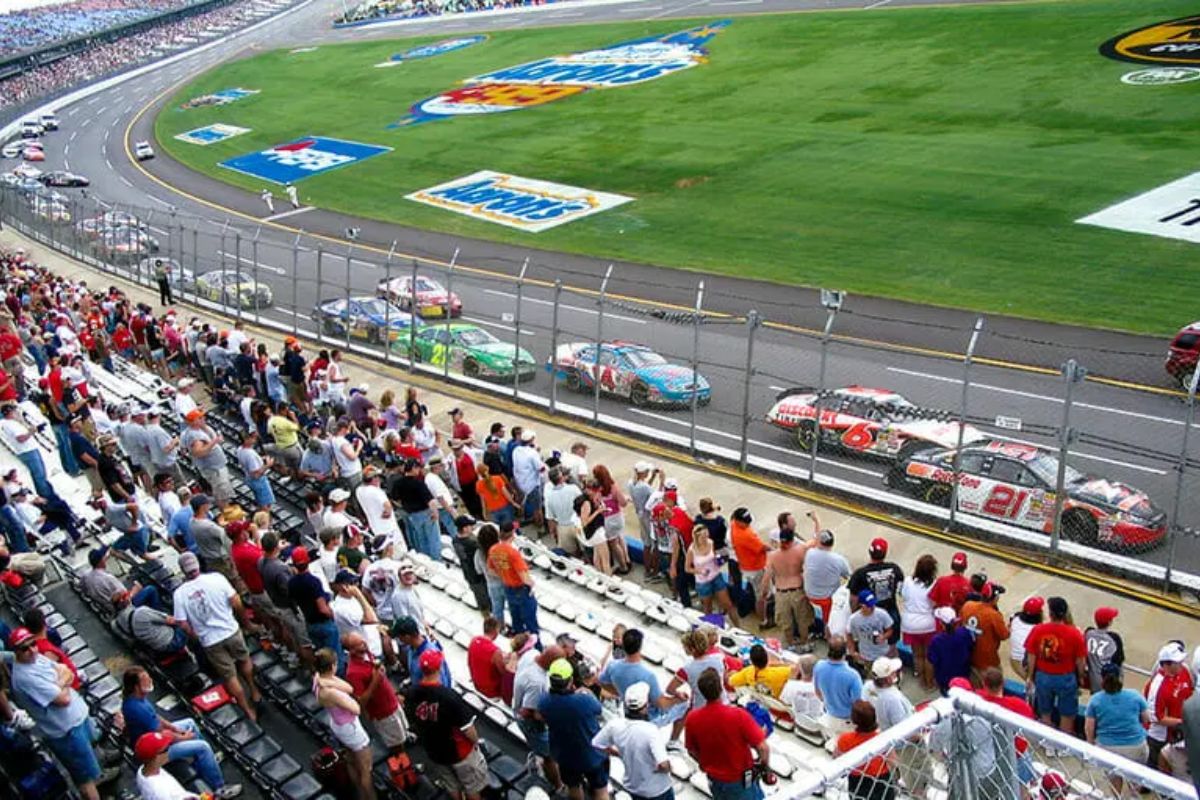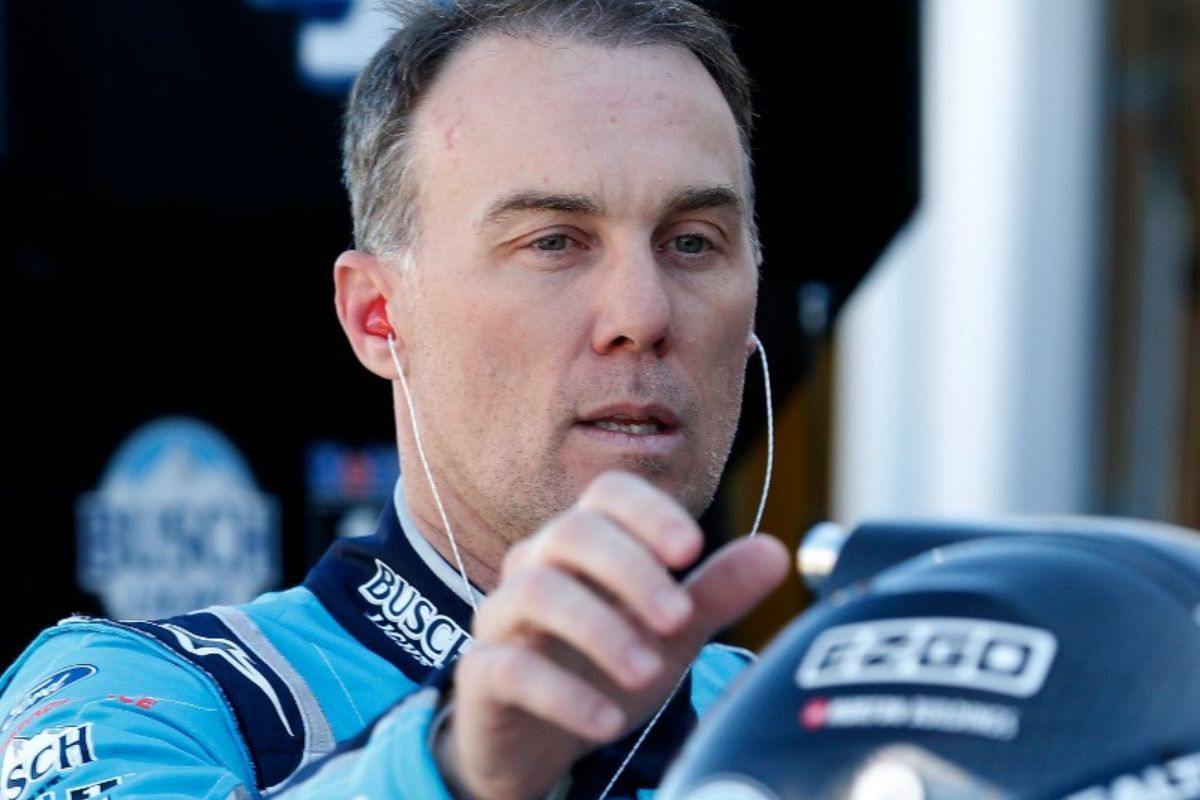Rodney Childers Reflects on SHR Wildest Moment: Rodney Childers recently revisited SHR‘s unforgettable success at the 2018 Talladega race, a moment that not only represented the team’s engineering skill with a remarkable 1-2-3-4 finish but also served as a proof of their resilience against the unpredictable nature of NASCAR. As Childers reflects on this peak achievement, he contrasts it with the current turbulence marked by his own suspension and the team’s shifting dynamics. This contrast raises critical questions about leadership and adaptability in a sport that is increasingly competitive and unpredictable. How will SHR navigate these challenges while aiming for a return to glory?
Key Highlights
- Rodney Childers recalls the 2018 Talladega race as SHR’s iconic moment, showcasing their technical prowess and teamwork.
- The team’s remarkable 1-2-3-4 finish highlighted effective draft manipulation and tire management strategies.
- Childers’ suspension during the final races tested SHR’s adaptability and resilience under pressure.
- The absence of Childers emphasized the critical role of leadership in NASCAR, especially during championship competitions.
Rodney Childers Reflects on Iconic SHR Moment
In a recent reflection on the storied history of Stewart-Haas Racing, Rodney Childers pinpointed the 2018 Talladega race as a defining moment that encapsulated the team’s unmatched competitiveness and engineering skill. This race served as a vivid example of how SHR could utilize its technical expertise to outperform competitors in a high-stakes environment characterized by unpredictability and speed.
Childers, who has been integral to the No. 4 team’s success since 2014, highlighted the race as an exemplar of SHR’s capability to not merely participate but dominate in NASCAR’s most challenging arenas.
The 2018 Talladega race was not just a display of raw speed; it exemplified the intricate strategies that underpin successful racing. SHR’s engineering team showcased an understanding of aerodynamics and tire management that allowed them to manipulate the draft effectively, leaving competitors scrambling to keep pace.
Childers’ remark, “The whole field couldn’t even draft with us,” emphasizes the notable advantage the team enjoyed that day, a proof of the meticulous preparation and inventive approaches that characterize SHR.
I have to say.. That was pretty insane. The whole field couldn’t even draft with us 😬😬 https://t.co/IENYaCl88D
— Rodney Childers (@RodneyChilders4) August 2, 2024
As the team approaches its final season in NASCAR, reflecting on such milestones is vital. These moments not only highlight the technical excellence of SHR but also serve as a reminder of the legacy they leave behind.
2018 Talladega Race Overview
How did the 2018 Talladega race become a testament to Stewart-Haas Racing’s tactical expertise and teamwork, culminating in a remarkable 1-2-3-4 finish among its drivers? The race illustrated the tactical insight of SHR as they executed a flawless team approach on one of NASCAR’s most unpredictable tracks. With a lineup featuring Kevin Harvick, Clint Bowyer, Kurt Busch, and Aric Almirola, the team demonstrated their ability to work in unison, ensuring that they maintained a competitive edge throughout the race.
The race dynamics were particularly telling. Busch led a notable portion, dominating the initial stage until a fuel miscalculation jeopardized his position. However, the teamwork shone through as Bowyer and Almirola capitalized on this misfortune, ultimately securing the top two spots in the race.
| Driver | Stage Results |
|---|---|
| Aric Almirola | 1st Place (Race Winner) |
| Clint Bowyer | 2nd Place |
| Kurt Busch | 3rd Place |
| Kevin Harvick | 4th Place |
Childers’ Suspension and Impact on the 2018 Season
Rodney Childers’ suspension during the essential final races of the 2018 season posed considerable challenges for Kevin Harvick and Stewart-Haas Racing, ultimately testing the team’s resilience and adaptability under strain.
The suspension, resulting from an infraction involving an unapproved spoiler on Harvick’s No. 4 Mustang after their victory at Texas, forced the team to navigate a such environment without their seasoned crew chief during critical moments.
ICYMI: Tony Gibson will make his return to the pit box this weekend at @ISMRaceway, stepping in for suspended crew chief Rodney Childers.
Read more: https://t.co/kq4NWOE7vQ pic.twitter.com/4wdJT7zwfT
— NASCAR (@NASCAR) November 8, 2018
The absence of Childers, who had cultivated a deep understanding of Harvick’s driving style and the subtleties of the car, raised questions about how effectively the team could maintain its competitive edge. With Tony Gibson stepping in as the interim crew chief, the team faced a steep learning curve. Gibson’s experience was invaluable, yet the disruption in communication and strategy implementation posed considerable risks, particularly as they approached the championship race.

Throughout this tumultuous period, Harvick and his team exhibited remarkable adaptability. The stress of competing without their primary strategist highlighted the importance of teamwork and collective problem-solving. Harvick, known for his mental fortitude, had to recalibrate his approach, relying on his instincts while also integrating Gibson’s insights.
Ultimately, Childers’ suspension not only impacted race strategies but also emphasized the complexities of NASCAR’s regulatory environment. The experience became a lesson in resilience for Stewart-Haas Racing, shaping their approach to adversity and accentuating the need for a cohesive unit in the face of uncertainty.
2018 Championship Race and Childers’ Role
Amidst the high-stakes atmosphere of the 2018 Championship Race, the absence of Rodney Childers as crew chief for Kevin Harvick highlighted the vital importance of leadership and tactical decision-making in NASCAR‘s most essential moments. Despite Harvick’s impressive performance—leading 58 laps, winning stage 1, and securing a strong runner-up finish in stage 2—Childers’ suspension cast a shadow over the team’s potential victory.
The intricacies of race strategy and real-time adjustments are often what separate champions from contenders. Childers, known for his keen analytical skills and tactical foresight, typically plays a significant role in orchestrating these elements. His absence not only deprived Harvick of a trusted advisor but also emphasized the challenges teams face when key personnel are sidelined. While Harvick’s individual talent shone through, the ultimate outcome—Joey Logano clinching the Cup title—illustrated how vital collaborative decision-making is in championship scenarios.
Moreover, had Harvick emerged victorious, NASCAR’s approval for Childers to partake in the team’s celebrations would have served as a poignant reminder of the delicate balance between individual excellence and team synergy. This intricate dynamic in motorsport emphasizes that championships are rarely won solely through driver skill; they are often the product of cohesive teamwork and tactical insight.
News in Brief: Rodney Childers Reflects on SHR Wildest Moment
The 2018 Talladega race stands as a crucial moment in Stewart-Haas Racing’s history, epitomizing the team’s engineering skill and competitive spirit.
However, recent challenges, including leadership disruptions, highlight the need for resilience and tactical adaptability.
As the NASCAR landscape evolves, the ability to navigate uncertainties will determine the team’s future success.
Maintaining a strong foundation built on leadership and creative thinking will be fundamental for sustaining the competitive edge that characterized SHR’s remarkable achievements.
ALSO READ: Rodney Childers Prefers Brickyard 400 Over Championship: Reminisces with Ex-SHR Driver


